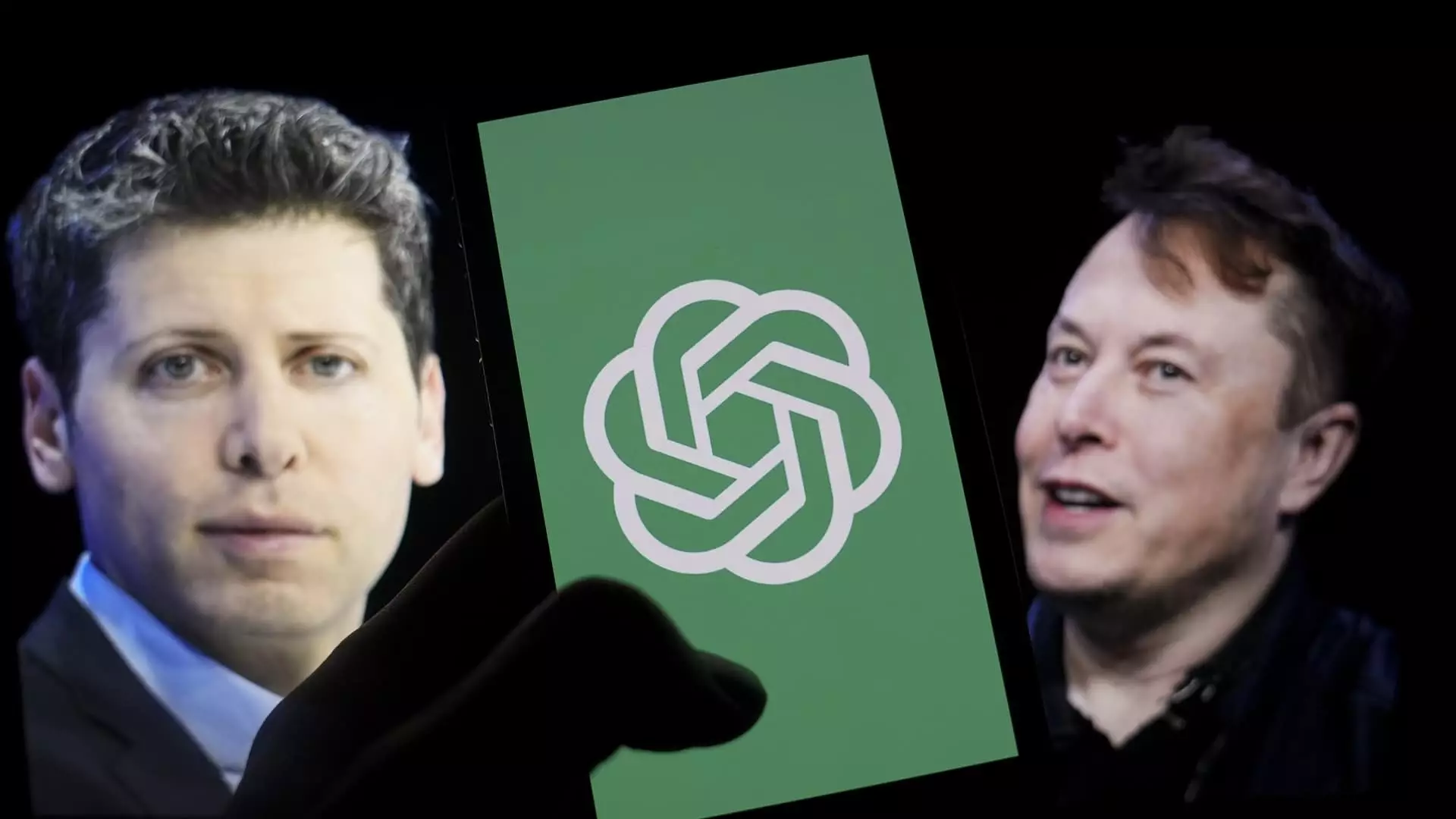In a dramatic twist within the sphere of artificial intelligence, Elon Musk is pursuing legal action against OpenAI, which he alleges is shifting towards a purely profit-oriented model that could stifle competition and innovation. Musk, now back in the litigation arena with a new suit, is intent on halting OpenAI’s transition into a fully for-profit organization. His legal team submitted a preliminary injunction last Friday, seeking to prevent what they describe as questionable practices that could adversely impact his own AI venture, xAI, and other competitors.
Musk’s impetus for this legal maneuver is grounded not only in corporate rivalry but also in a broader concern regarding the ethical landscape of AI development. He and his attorneys contend that OpenAI has engaged in activities that violate federal racketeering laws, arguing that the organization is partaking in a “group boycott” to limit competitors’ access to necessary funding. This accusation raises significant questions about the dynamics of investment and collaboration in the burgeoning AI market.
The roots of this dispute can be traced back to Musk’s initial grievances with OpenAI dating as far back as March 2024, when he filed a lawsuit in a San Francisco state court. Following that initial filing, Musk withdrew the case, only to reemerge months later in a federal court with more comprehensive allegations. This series of legal maneuvers highlights not just personal animosities but a fundamental clash of visions for the future of AI technology.
Musk’s xAI has been gaining traction since its earlier debut in July 2023, with aims not only to innovate but also to disrupt what he perceives as monopolistic practices in the sector. His complaint indicates a broader implication of how large corporations, with significant financial clout and backing—likewise represented by figures such as Microsoft and investor Reid Hoffman—can shape the competitive landscape to their preference.
Central to Musk’s allegations is a claim that OpenAI and Microsoft engaged in collusive behavior by pressuring investors to abstain from funding rival companies. This not only raises flags regarding accountability and fair play but also throws into retreat the narrative of meritocracy often touted in Silicon Valley. Such practices, if substantiated, could undermine the integrity of an industry that prides itself on innovation and competition, fueling suspicions about the fair allocation of resources within AI research and development.
Moreover, the legal documents filed by Musk’s attorneys cite OpenAI’s interplay with Microsoft, indicating a troubling entanglement that could potentially mislead the market. The legal team argued that OpenAI is using an ethically compromised model to entrench its position further while simultaneously denying others, including Musk’s xAI, access to essential resources. This interrogation of corporate practices aligns with recent Federal Trade Commission initiatives examining the relationships between tech developers and cloud service providers, thus echoing a growing concern for regulatory scrutiny in tech mergers.
In response, OpenAI has steadfastly defended its practices, dismissing Musk’s allegations as “baseless complaints.” They argue that their transformation into a full-fledged for-profit entity is both a strategic move and a necessity for sustainable growth and innovation. OpenAI’s evolution from a nonprofit to a capped-profit model aimed to strike a balance between investing in cutting-edge AI technology while simultaneously retaining a commitment to public welfare—a harmony that, many believe, is essential in the rapidly evolving tech landscape.
The ongoing tension encapsulates a reignited debate about how AI should be governed and the ethics of its development. Should profit motivation override ethical standards? Can a balance be maintained between rewarding investors and fostering an inclusive atmosphere for all players within the AI industry? OpenAI’s trajectory, especially after securing substantial investments—amounting to almost $14 billion from Microsoft—underscores the complexities of modern financing in tech.
As this legal drama unfolds, it highlights the precarious balance of power within the AI community and prompts critical inquiries into the future of competition in technology. The generative AI market is predicted to balloon into a trillion-dollar industry within the next decade, but this potential may hinge on reinventing traditional models of cooperation and competition.
In the wake of these events, stakeholders must grapple with how future innovations can emerge from a space that is, increasingly, interlinked with substantial corporate influence. As models of collaboration between tech giants and emerging startups continue to evolve, transparency and fairness in investment practices are critical to ensuring that the future of AI isn’t monopolized but democratized for the advancement of all. Musk’s legal battle, albeit tumultuous, serves as a reminder of the ongoing need for accountability in a sector that holds profound implications for society.


Leave a Reply